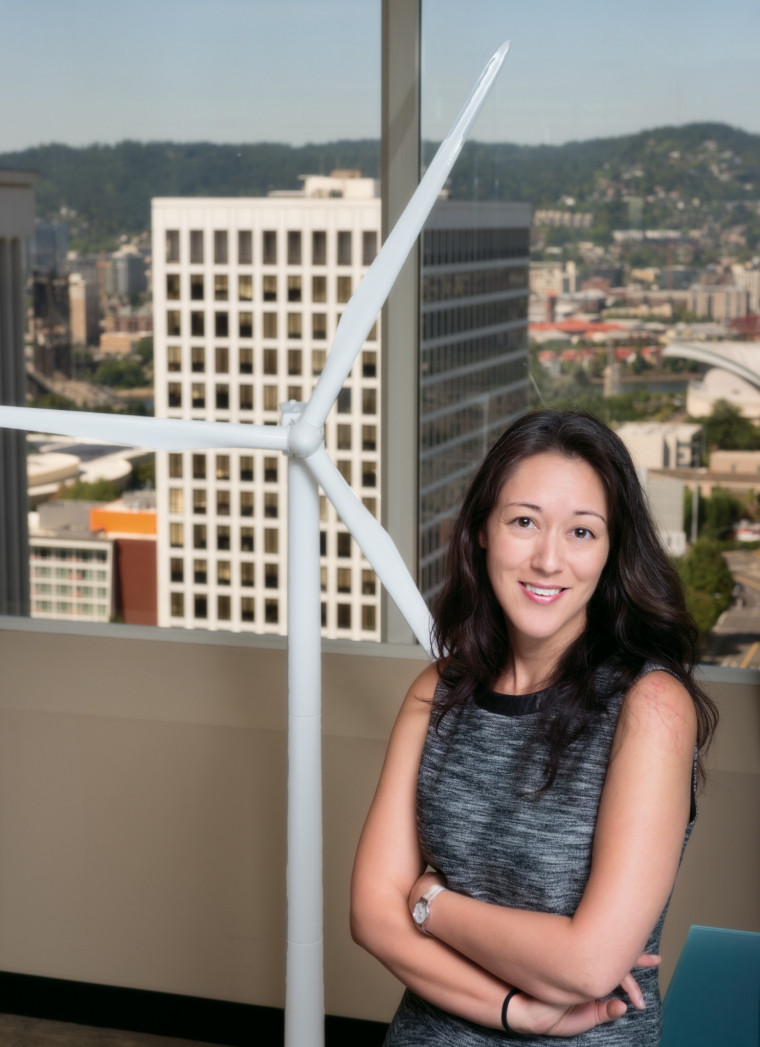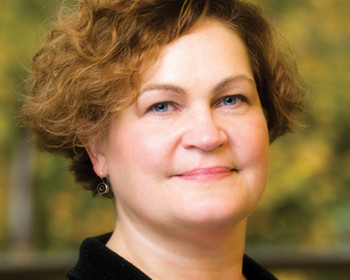Etta Lockey ’11
Open gallery

Lockey earned a degree in political science from the University of Oregon. Following law school, she worked for McDowell Rackner & Gibson, an energy firm in Oregon. She is now senior counsel at PacifiCorp.
How did you get into energy work?
I wanted to get some experience before I made a final decision about heading to law school and so I took a paralegal job at Iberdrola Renewables (now called AVANGRID Renewables), a renewable energy company with its U.S. headquarters in Portland. I found that I loved it. It was a time of huge development within a relatively young business, and it was dynamic and exciting.
Why did you pick law school, rather than business school or something else?
At Iberdrola, I saw how in-house lawyers worked across all the business units on all the most interesting issues. The legal department was—and still is—filled with really interesting people doing inspirational work. I wanted to be part of that.
What’s the most surprising part of your work at PacifiCorp?
Finding myself practicing in a completely different area of energy law than I initially planned on. My first experience was with an independent power producer and I was really interested in that business model. The fact that I now work for a regulated energy company and am exposed to that side of the energy world is fascinating to me and completely unexpected.
How do you manage all the changes in the energy industry?
As a representative of a regulated energy company, I have to keep in mind two fundamental objectives: keeping the power on and keeping it affordable for customers. That makes all of the policy decisions challenging, because they result in hugely important consequences for customers. Regulated energy companies want to be environmentally protective and to reduce carbon dioxide emissions, but we also need to make sure the energy system remains reliable and affordable. It’s both exciting and scary, in terms of the potential for positive environmental outcomes and potential impact on our customers.
You were actively involved in negotiating Oregon’s new “coal to clean” energy legislation, SB 1547. How was that experience?
Exhilarating! We have an energy system with a lot of existing infrastructure and sunk costs. There’s no easy way to adjust for the future without addressing the realities of the past.
It’s both exciting and scary, in terms of the potential for positive environmental outcomes and potential impact on our customers.Etta Lockey ’11
In my view, SB 1547 was a positive example of how a room full of stakeholders with different interests can work to align their disparate visions of the future and negotiate a path forward. We were able to balance the need to move toward a cleaner energy system with the necessity of keeping electricity affordable.
Do others within the electric utility system look at SB 1547 as a good way to move forward?
In Oregon, yes. It’s not clear yet whether utilities in other states have the same perspective.
What makes you feel most optimistic about the changes in the energy system?
In the West, there is active discussion and planning around formation of a regional grid and more fluid energy market. That will make renewables easier to integrate reliably. And, when I read reports out of Europe that some places have been able to rely on 100 percent renewables for a few hours, I feel really optimistic. In the United States, we also see all sorts of innovations with distributed generation. These technological changes make me feel optimistic that we can do a lot more with renewables. The challenge will be transitioning our current system to the system of the future without stranding costs or harming customers. Those are not small challenges, but the successes in other places make me think we can do it here.
What advice would you give to students interested in energy law?
Understand the industry. Understand who the players are and what the issues are. Immerse yourself. Employers want to see that you really care about energy law. It’s a funky, funky field.
My other piece of advice applies to anyone practicing law. Make sure you focus on how to respond to your clients’ needs. Lawyers are essentially customer service providers, so you need to figure out how to serve their needs, not just understand the law.
More Advocate Magazine Stories
email jasbury@lclark.edu
voice 503-768-6605
Judy Asbury, Assistant Dean, Communications and External Relations
Advocate Magazine
Lewis & Clark Law School
10101 S. Terwilliger Boulevard MSC 51
Portland OR 97219

